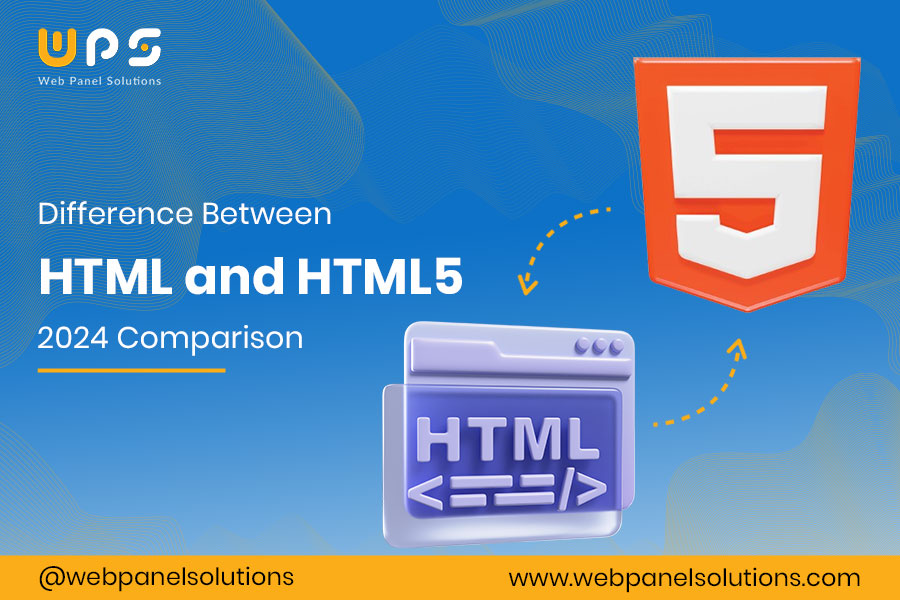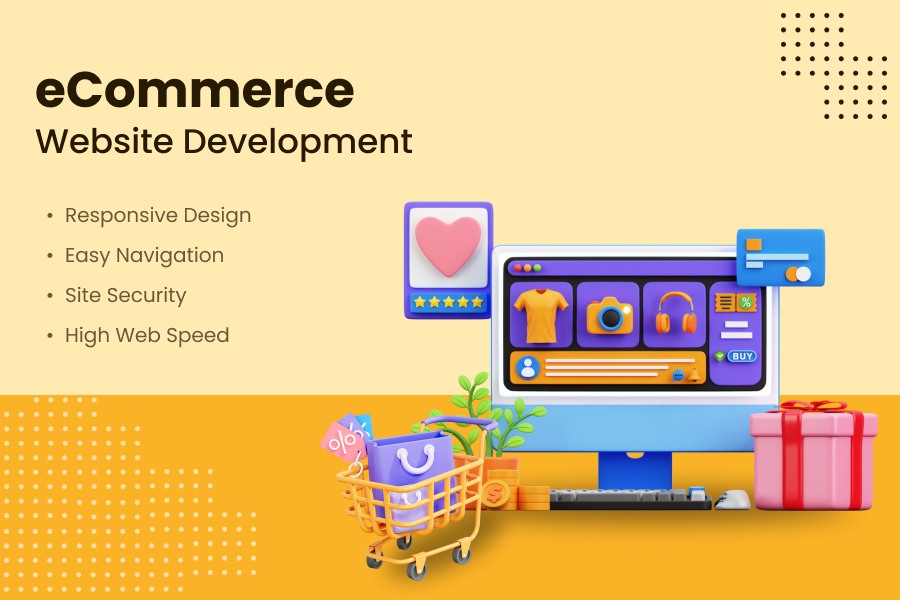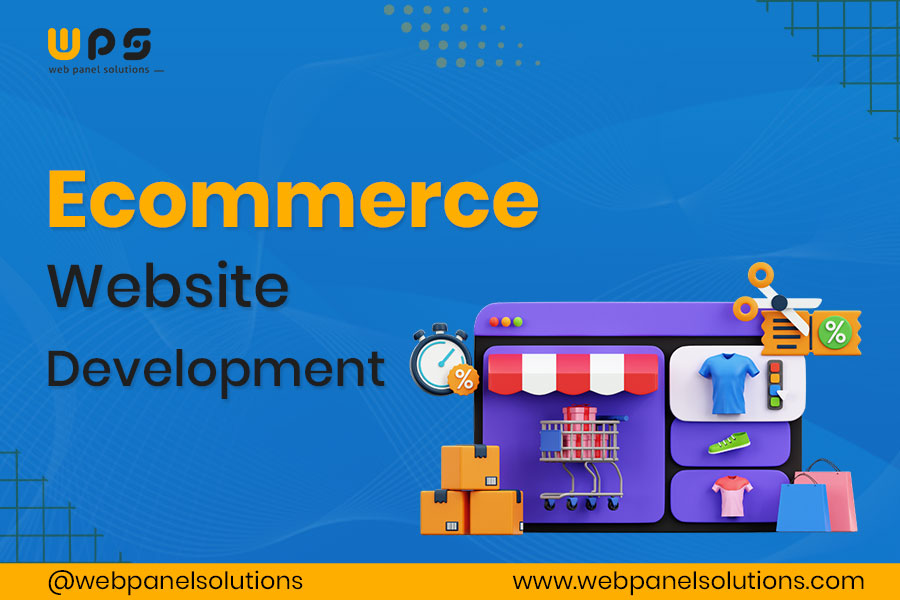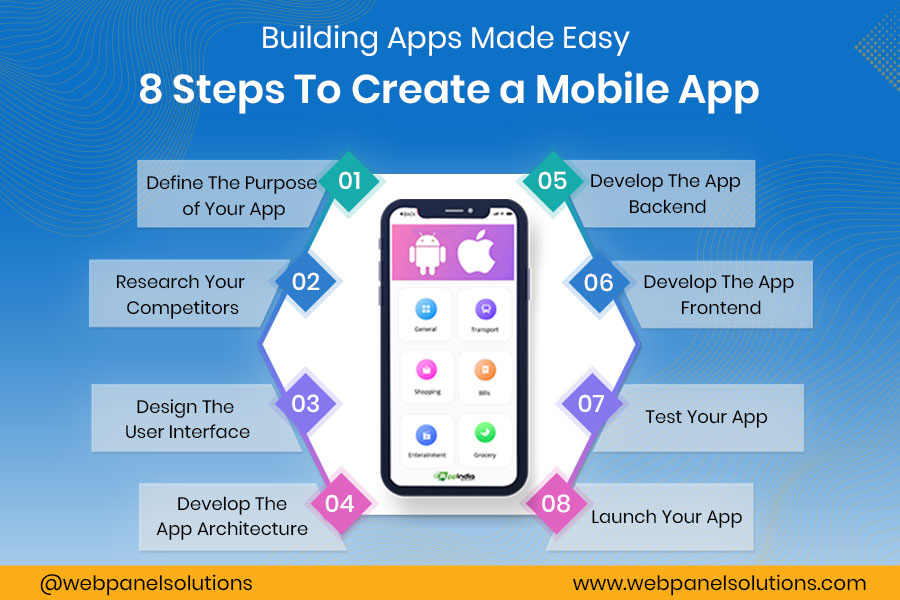Difference Between HTML and HTML5: 2024 Comparison
4 min read
29th June, 2024
If there is one language that has been ruling the web for a long time and still possesses great relevance is HTML. Initially released in 1993, HTML is great, and used by best custom website development services for, embedding images/videos, interacting with native APIs, game development, improving client-side data storage, enabling offline capabilities, and more.
Do you want to know more about this fascinating language? Let's dive in. We’ll also compare HTML with the latest version that is called HTML 5.
What is HTML?
It is a markup language developed by Tim Berners-Lee to enable anyone in coding websites. It is called the Web's foundation. It determines website meaning and structure. It is easy to add pictures, music, video, formatting styles, and layouts with HTML on a web page.
Benefits of HTML Web Development Widely Used Across The World
Over 93% of websites worldwide use HTML in some or other ways making it widely accepted. To browse the page, all you need to do is to click a link or type the URL into the address box. It makes internet browsing feasible if you don't know all the URLs. It's important to direct customers across your website and function as a gateway between areas.
HTML is relatively easy to learn and use, making it an accessible technology for startups with limited resources. Even non-technical team members can understand and contribute to HTML development.
HTML Supports Almost All Browsers
You do not need to worry about browser support while using HTML. In the case of other fancy languages, Programmers are required to optimize the website for various browsers in a complex way. Whereas, HTML offers the easiest way to optimize according to web browsers.
HTML's simplicity and the availability of libraries and frameworks significantly speed up development. It allows startups to bring their products to market faster and stay ahead of competitors.
Comes With Advanced Features
HTML is the underlying language for all of the other programming languages. In order for an HTML app development programmer to be either a front- or back-end developer, they must have a working grasp of HTML as other languages such as Java, PHP, etc are integrated with it while coding. One who has decent knowledge of HTML, grasp XML faster.
Polyfill which enables you to utilize alternative technologies natively is supported by HTML.
Lightweight And Offline Storage Capability
HTML is a small-sized language as it has a better signal-to-noise ratio than other methods of communication. Moreover, thanks to the high conversion ratio, HTML code is fast to download.
It is surprising but true that an HTML can still make applications work offline with the help of cache mechanisms through the latest version of HTML. The cache has the capability to tackle offline abilities. You can contact a dynamic CMS website development services, for working on HTML.
Easy Scalability And Integrations
As your startup grows, HTML-based applications can be scaled by adding more server resources or optimizing the codebase. This scalability is essential for handling increased user loads.
Moreover, HTML becomes more useful in conjunction with other technologies and APIs to integrate with third-party services and tools. It allows startups to leverage existing solutions and expand their product's capabilities.
HTML is well-suited for building responsive web applications that adapt to various screen sizes and orientations. This is essential in today's world prioritizing mobile technology.
A/B Testing And Rapid Prototyping
HTML-based interfaces make it easier to conduct A/B testing. You can gather data on user behavior and preferences to improve your product over time by best custom website development services.
HTML allows for rapid prototyping and iterative development. Startups can quickly create functional prototypes of their product ideas, gather feedback, and make improvements without the need for extensive coding.

Helps In Enables High Search Ranking
HTML is much more user-friendly when it comes to building SEO-friendly websites than any other computer language. Web crawlers have a better time reading and accessing HTML-powered websites resulting in faster page load times and less parsing time. Search engines consider fast speed in ranking thus performance increases.
High Data Security
While security depends on various factors, HTML offers a solid foundation for secure dynamic CMS website development services. Best practices and security measures can be implemented to protect your product and user data.
HTML Is Free To Use
HTML does not need the use of any plugins, thus there is no need to deal with this issue. Additionally, businesses do not need to purchase any software for using it. This saves HTML app development businesses a lot of money since the license doesn't need to be purchased.
HTML has a large and active developer community, which means you can find plenty of resources, tutorials, and pre-built components to accelerate development.
Easy Mobile Optimization
As mobile internet users continue to outnumber desktop and laptop users, it is imperative that businesses cater to mobile users' needs. You can create websites and apps for a wide range of mobile devices using HTML. Delivering content on a wide range of devices expands the audience.
Comparing HTML and HTML5
HTML:
- HTML lacks built-in audio and video capabilities.
- It only supports vector graphics via external technologies like Flash, VML, or Silverlight.
- HTML has limited support for inline MathML and SVG.
- Users cannot draw shapes such as squares, triangles, or circles using HTML.
- Data is temporarily stored using browser cache and cookies.
- JavaScript and the browser interface operate on the same thread.
- It involves complex character encoding types.
- The drag-and-drop feature is not available.
- It works seamlessly across all browsers.
- HTML is derived from the Standard Generalized Markup Language (SGML).
HTML5:
- HTML5 provides native support for audio and video.
- It supports SVG, canvas, and other virtual vector graphics.
- Inline MathML and SVG are supported within text in HTML5.
- HTML5 allows users to draw various shapes as needed.
- Data can be temporarily stored using local storage, web SQL databases, and application cache.
- JavaScript and the browser interface run on separate threads in HTML5.
- It features simpler character encoding types.
- HTML5 includes a drag-and-drop feature.
- It is compatible only with newer browsers.
- HTML5 has enhanced compatibility and improved parsing rules.
Conclusion
In short, this programming language is easy to use, adaptable, and will only become better with time. Its support for data entry, game development, and client-side data storage is phenomenal. With a team of experts, you can get cutting-edge web app development in HTML or any other programming language. Contact Web Panel Solutions to know about about our best custom website development services.





















